Alternate professional views on the state of high school journalism

The week of Feb. 21-25 is Scholastic Journalism Week, established by the JEA to support scholastic journalism. This year’s theme is #AmplifyingVoices, so it appeared fitting to write about the evolving state of how student voice is shared and valued, and how traditional platforms such as journalism newsrooms are impacted today in an effort to be an ‘amplifier.’
What’s happening with scholastic journalism programs?
Looking outside of our campus for other county journalism teams proved to be difficult as programs like ours are not easy to find, but the search will continue. In the meantime, looking for a professional opinion led me to interview whom I would consider several experts on the topic that only confirmed my concern for the state of scholastic journalism.
…To be frank, without the implementation of student voices within schools, there truly would be no story to tell.” #AmplifyYourVoice pic.twitter.com/yqTqh9NU03
— JEA’s Scholastic Journalism Week (@ScholasticJWeek) February 22, 2022
David Cutler
David Cutler is the advisor of The Gator at Brimmer and May School, and Executive Director of PSJA. Cutler supports private schools in any way possible.
Recently, he wrote The Dying State of Private School Journalism. This intricate article describes private schools’ removal of their journalism programs because of budget, fear of the student voice, and assumptions that students are simply not interested in joining.
“I do think that private and independent schools face an uphill battle when it comes to administrators recognizing an independent student press,” Cutler said. “Especially in competitive and saturated markets, too many administrators fear bad press will lead to lower enrollment and fewer donations.”
Journalism is believed to add more stress to a student’s life. However, learning to write builds great life skills.

Small newspapers can create a massive impact in their own school, local community, and outside of the private school’s independent sector.
Jim Boren, Veteran Editor
Jim Boren is a Fresno State professor and the Executive Director of the Fresno State Institute for Media and Public Trust. Previously, he worked at the Fresno Bee for 48 years, where he became the executive editor and the senior vice president.
A celebrated journalist and editor, he was the executive editor of the Bee for 22 years. He also served as a juror for the 2016 and 2017 Pulitzer Prizes.
Boren was a journalist for his college newspaper during the Vietnam War. Boren and his fellow journalists wrote with an unbiased viewpoint, even though the majority of them were anti-war.
He believes that journalism programs in high schools can be one of the main factors to connect the division between the older and younger generations.
“I don’t think politicians ignore student voices, but they don’t have access to student voices,” Boren said. “I think that the good journalism programs in high schools can go to people that are making decisions that impact young people and ask them questions and make them defend their decisions and write stories that, maybe, aren’t on their radar.”
But what may stop a young journalist is the fear of raising a controversial issue – the fear that schools would silence their voice or shut down the journalism program, because they don’t understand the importance of media.
“What people who think that way don’t know is that controversies are already there and they’re going to bubble up in different ways,” Boren said. “Your journalism can give voice to all sites, and give steady information to your readers, your student body, as well as your faculty and staff.”

A vast number of the population today believes that the journalism industry is dying, an assumption stopping many adolescents from pursuing a career in that area. Yes, print journalism and smaller programs are declining, but podcasts, digital journalism, and multimedia jobs are rising in popularity.
Newsrooms such as Cal Matters, The LA Times, and many other popular media sites are still active and growing. The news cannot die, and we, as people, are always going to seek knowledge. Whether it be from pamphlets, newspapers, the current digital era, or to an unknown technological future.
“There’s always going to be a thirst for information,” Boren said.
Samantha Morales, College Editor
Samantha Morales, a 20-year-old Fresno City College student, is finishing her last semester as a Journalism major. Currently a news editor for The Rampage, FCC’s newspaper, she plans to pursue a career in journalism.
During her senior year at Selma High School, Morales joined The Clarion, where she discovered her passion for journalism. Throughout her time as a journalist for The Clarion, she wrote articles pertaining to imperative subjects.
Morales wrote about the performing arts, Fresno City College Dance Department’s Annual “City Dance” Concert, controversial political topics, Students Against Vaccine Mandate? A Big Problem for SCCD?, and provided a platform for the Asian-American community at FCC, Asian American Faculty and Staff Association is Hosting a Valentine’s Gram Fundraiser.
Through her entire experience as a journalist, she never experienced any fear writing on a matter that would cause possible controversy. Yet she infers that there are some schools that fear the student voice.
“Some schools do not like student-run newspapers,” Morales said, “because sometimes they can expose the truth about if the school is doing something skeptical.”
She agrees with Boren’s opinion that journalism is not dying, and that there are extensive job opportunities in the field, such as brand journalists. What is a problem is the lack of exposure high school and college students receive about journalism.
“Even now, when I tell people my major they’re shocked by it,” Morales said. “But I think that has to do with most schools having a hard time from professors and teachers to teach, along with the enrollment of these classes being low because they get less funding.”
The focal struggle Morales has seen is the absence of enrollment in the journalism program.
“There is a need for more reporters, videographers and photographers,” Morales said. “But we are not getting a lot of people.”

As an editor, she personally struggles with helping her team to the best of her abilities. A team member may be too shy in order to ask for help, or she becomes overwhelmed when multiple people come to her for assistance.
Morales said, “I really have to look and see how I can help people in their own way where they feel comfortable to come to me.”
Marc Benjamin’s opinion on journalism’s entirety
Marc Benjamin worked as a journalist for 31 years, 18 of those years at the Fresno Bee under Jim Boren. During his time at The Bee he had a front row seat to the adjustment of the news industry and shifts as a newsroom.
The peak for the newspaper’s circulation, the number of copies it distributes on an average day, went from about 165,000 to 42,000 a day, an example of the decline in printing production.
Fresno Bee adapted to an online site, currently having 46,000 subscriptions. It also tried out click bait a few years ago. Journalists would receive a certain amount of money based on the amount of clicks they received on their article.
Now the Bee pays their journalists by receiving money from a specific political group. In exchange, they support those groups in their article, a trend that many other news sources have become accustomed to.
News sites such as the right-leaning San Joaquin Valley Sun and the left-leaning GV Wire, predominantly write in contribution to their political ideology.
The journalism world seems to be completely evolving, but it is actually reverting back to the Jeffersonian era. Throughout the course of Jefferson’s presidency, the press printed out papers that presented biased political agendas. Over time the press changed to become more neutral, but now we’ve relapsed.
Benjamin was adamant that if someone truly loves journalism they should pursue the profession. However, he warns that journalism does not pay well unless you rise to the top.
Kori James – Feather Adviser
Joining the team in 2013, Kori James was admittedly out of her league in an unfamiliar world with nothing other than visual digital media and design.
“As a photographer I felt I had something to offer the team but was quickly humbled as I observed a very talented group of students run that newsroom like a well oiled machine.” James said. “It became very evident that the skill set these journalist had were unique, empowering and scholarly.”
Challenge accepted as James dove into the world of scholastic journalism under the advisement of Greg Stobbe who was her English teacher back in 1995-96. Learning the ropes of more than just good writing, was the art of story-telling and all the necessary components of this award winning team.
“It took a good three to four years until I truly felt that I had something to offer as a c0-adviser,” James said. “I must have drove Greg crazy with the amount of questions I asked and my horrible overuse of comma’s.”
Today James is the only adviser for The Feather Online and advocates the necessity of journalism programs within high schools. Believing that the skills taught launch budding professionals, confident collegiate candidates and literate media consumers, James only sees value in the program.
“Since I began I have seen a drastic decline in interest amongst students to work hard at amplifying student voice,” James shares. “I think it’s one of those things where you won’t know how important is is until it’s gone. Yes students are receiving more info than ever on their mobile devices but without proper training in media literacy what are we shaping this next generation into? ”
Overview

The obvious conclusion is scholastic journalism is changing. Whether districts lack funding, student interest or desire to avoid controversy we all agree student voice matters. Nevertheless, those factors only intensify the need to preserve the development of students journalist.
Views of two advisors, an accomplished editor turned professor, a college news editor, and an experienced journalist, are all in agreement that journalism is evolving with the current times. However, they have differing views on what it has become, and how it is currently surviving.
Cutler differentiates by explaining that only private school journalism is fading away. Boren’s belief is that journalism is thriving, but we changed our news outlet to the media. Morales argues that the problem is with the unfamiliarity of the younger generations with the media. Benjamin sees that what the media is, is nothing new, only where people choose to find their truth. James expresses the need for students to have formative training to be literate consumers of media.
But what does this mean for high school journalism? The future of journalism is determined by the high school journalists of today, and what they choose to write about or should I say care about.
What if schools shut down their publications program, or silence a student’s article because the material exposed their actions? What should high schoolers do with their voice in the community? Would aspiring journalists still want to pursue that career if their chances of a stable future are so slim?
The first amendment of the Bill of Rights includes our freedom of press and speech. What would the younger generation do if these platforms were removed? We deserve our voices to be heard, regardless of age.
Hearing from all of the professional opinions, I came to the conclusion that in order for the student voice to be amplified, student journalist must evolve with journalism today. To use the media in our favor, and follow the trends to mass attention, for our voice to be listened too.
What’s your opinion on the importance of student voice and methods we use to amplify them? Let us know in the comments below.
For more info on Scholastic Journalism Week visit #SJW2022
For more Feather articles, read PROMO: Serve Day 2022, and Disneyland: Tips and Tricks.



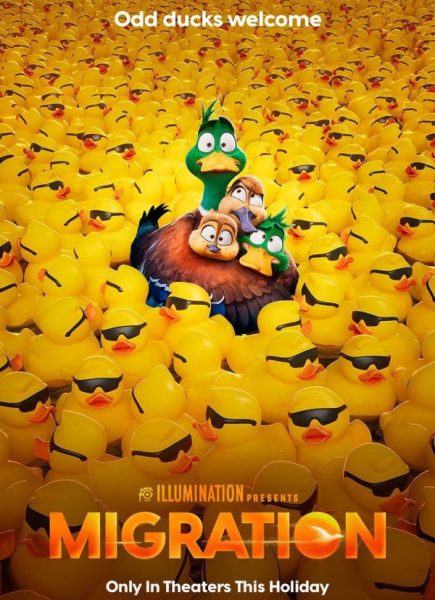



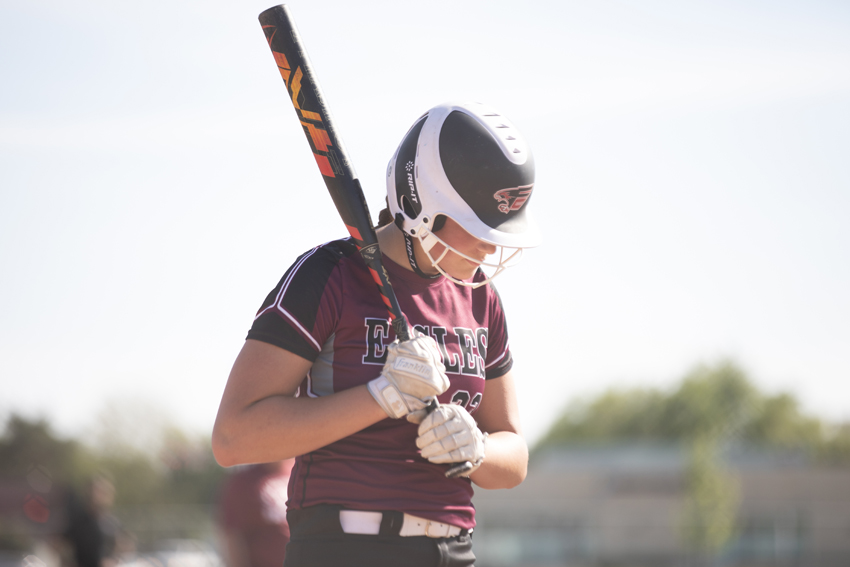
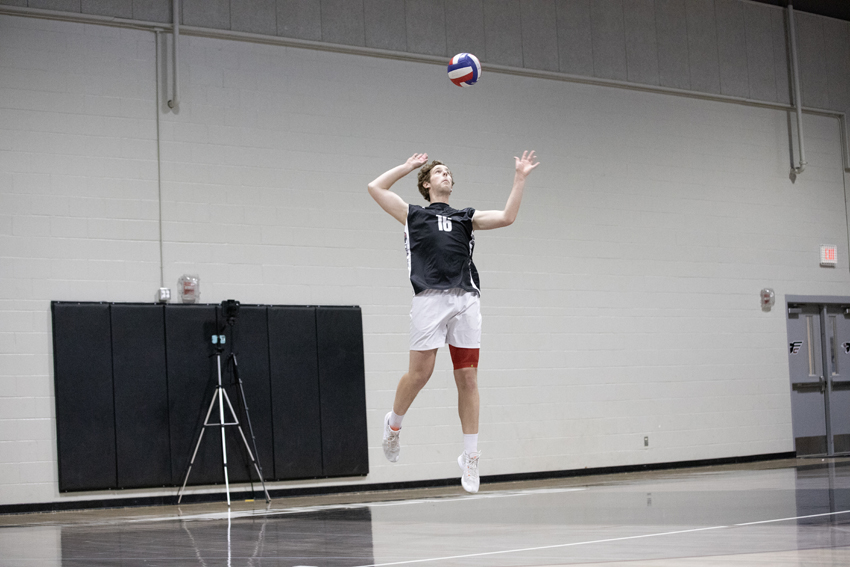
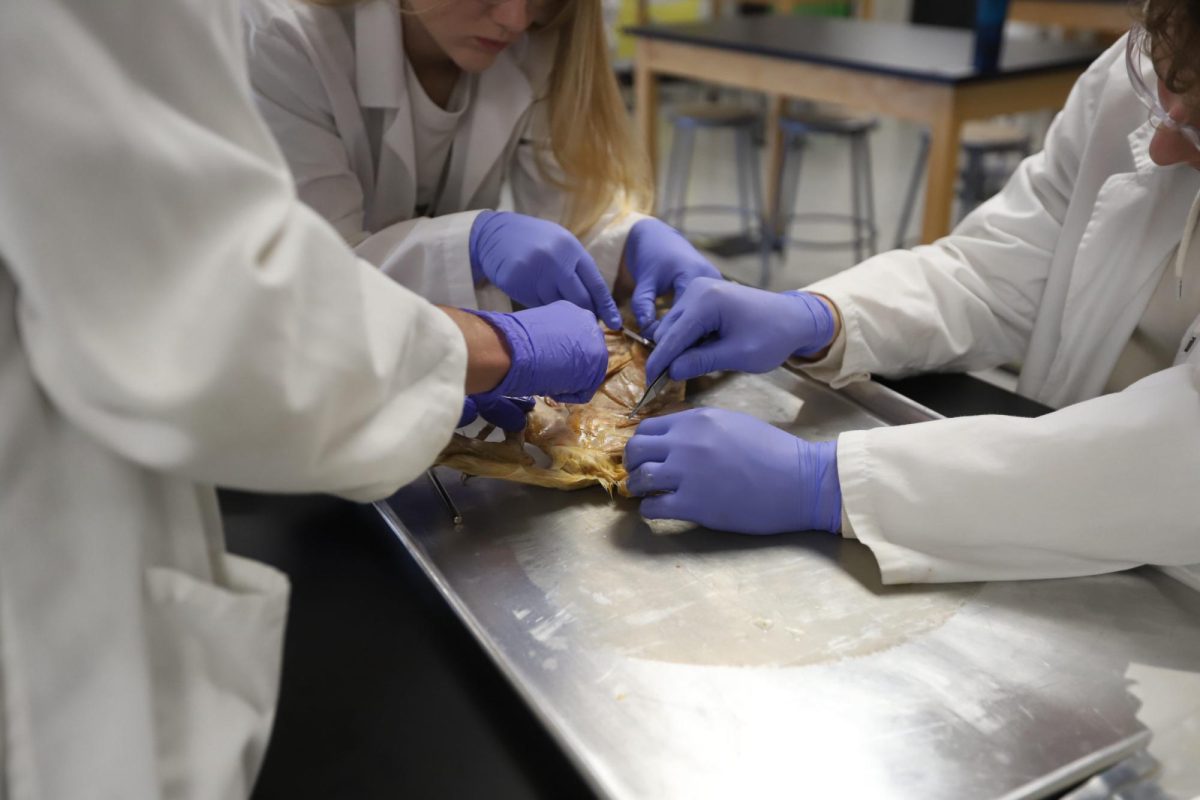
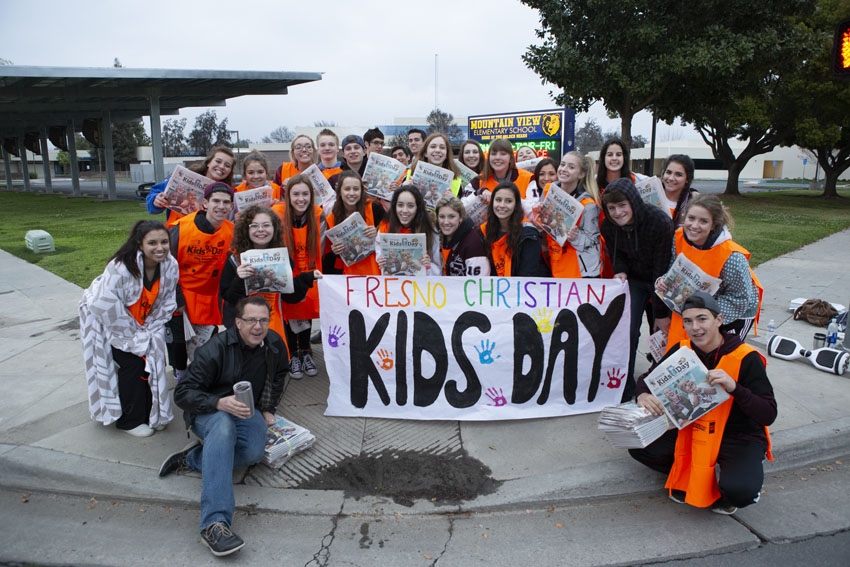
![[Video] 100th CSPA Spring Journalism Conference](https://thefeather.com/wp-content/uploads/2024/04/20240308-cspa-crown-002.jpg)

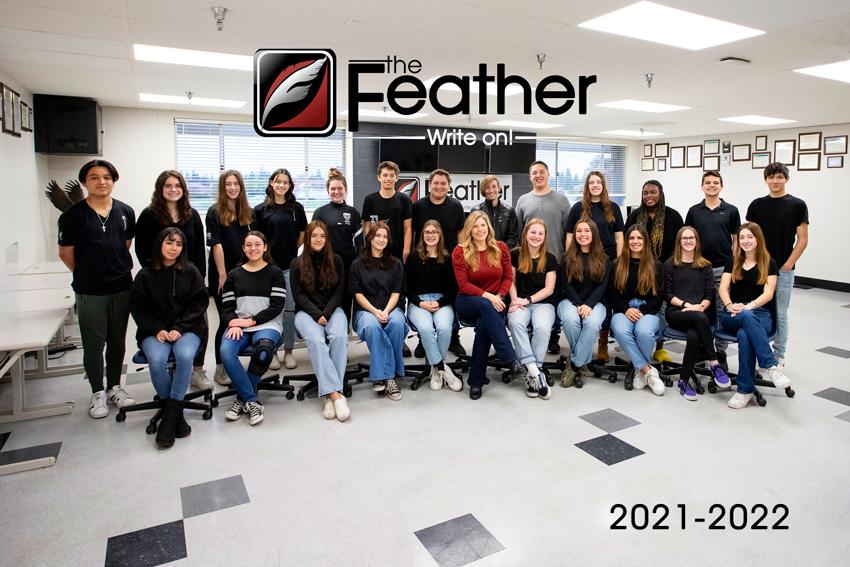


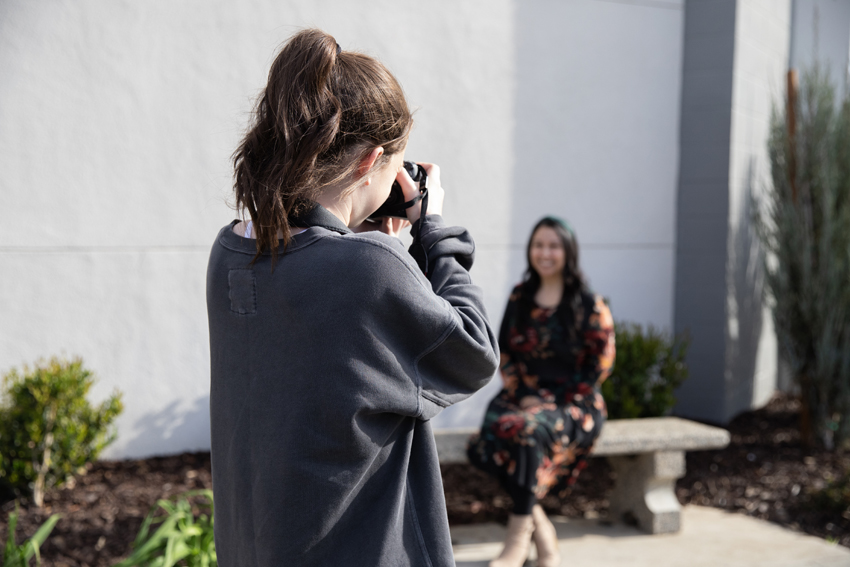



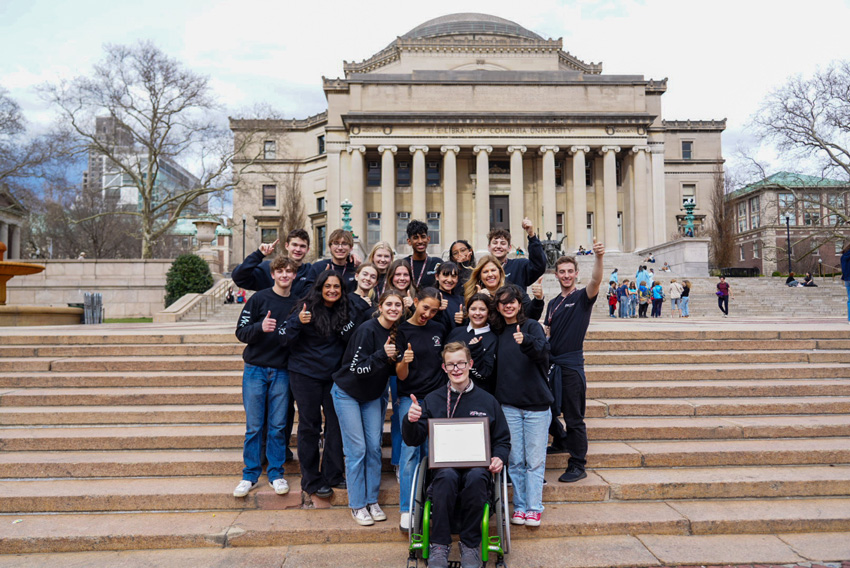
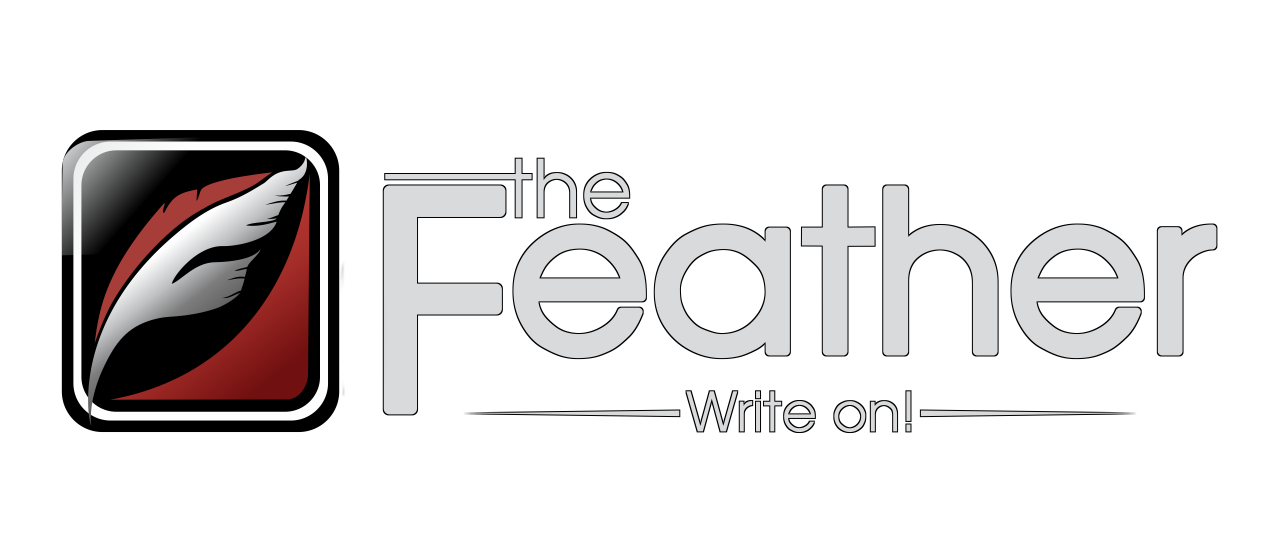
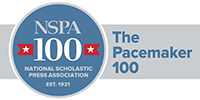
Sam Cross • Feb 27, 2022 at 8:42 pm
Nice job Emma on covering such a broad subject. This article showcased many different perspectives on a very real issue affecting both the high school and the professional world of journalism. I agree with Jim Boren on the potential opportunity high school journalism brings to bridge a younger and older audience. Emerging technologies provide the vehicle to make this ideal a reality. It’s up to the students to develop the best strategies to reach peers.
I believe that Boren’s argument for journalism can also encompass a bridge between high school faculty and students. Using journalism to begin conversations and discussions on school issues provides an opportunity to grow both as individuals and believers in Christ through shared struggle. Write on!